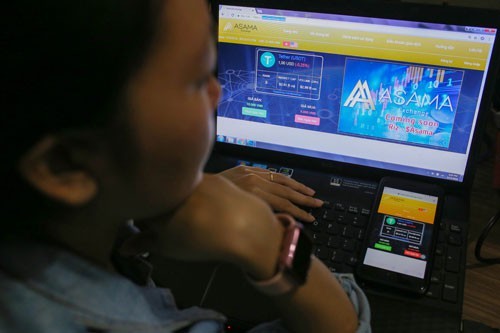 |
According to Nikkei Asia, Japan will issue a cryptocurrency with a value pegged to the Japanese Yen. It's essentially a stablecoin - a digital asset designed to mimic the value of legal currencies.
Different from traditional fiat currencies, stablecoins allow users to transfer digital assets globally at a cheap price and faster time, while maintaining price stability. Banks in Japan are expected to be allowed to issue stablecoins under a revised law that will come into effect next spring.
According to Mitsubishi UFJ Trust & Banking, one of the first benefits of the new cryptocurrency is that it will help to settle securities transactions more quickly in Japan thanks to blockchain technology.
The settlement of securities transactions in common currency takes days and costs tens of millions of US dollars a year in Japan alone. Using a stablecoin based on Blockchain technology is expected to eliminate such costs.
Many Japanese also expect this initiative to promote the application of Blockchain technology in securities transactions. The Trust Bank of Japan has been promoting this in partnership with SBI and Daiwa Securities.
Before Japan, many countries in Asia have also researched, piloted, and even deployed central bank digital currencies (CBDCs) using Blockchain technology.
Statistics as of December 31, 2021 show that China's electronic yuan (e-CNY) had 261 million users with a total transaction value of more than 87.5 billion yuan.
In Cambodia, Cambodia's Bakong digital currency has reached 7.9 million people, accounting for half of the country's 16.7 million population. There are 6.8 million transactions in Cambodia made through Bakong with a total value of 2.9 billion USD.
A survey by Bank for International Settlements in January 2021 found that 86% of 65 central banks polled said they were engaged in working with CBDCs. About 60% of central banks are open to the possibility of issuing their own digital currencies in the near future.
In the case of Vietnam, the State Bank of Vietnam recently issued a plan to implement the Prime Minister's Decision No. 1813/QD-TTg dated October 28, 2021 approving the project on development of cashless payments in Vietnam in the period of 2021-2025.
One of the contents mentioned in the plan is that the State Bank will study and propose mechanisms and policies on national digital currency. In addition, this unit will introduce appropriate policies on non-cash payment service fees, enabling users to access non-cash payment services at reasonable prices.
Previously, in mid-2021, the Prime Minister also assigned the State Bank of Vietnam to research, build and pilot the use of virtual currency based on blockchain technology in the e-Government development strategy for the 2021-2025 period.
There have been many guidelines and policies on the use of cryptocurrencies in Vietnam. However, with the rapid advances in cryptocurrency adoption by China, Cambodia and now Japan, it seems that Vietnam is a step behind other countries in the region in this field.
Trong Dat

Vietnam in global top 10 for cryptocurrency ownership rate
The Covid-19 pandemic has attracted capital from Vietnamese investors in cryptocurrencies. About 6 million Vietnamese own digital assets.

Vietnamese keen on cryptocurrencies: surveys
According to a survey by Chainalysis, Vietnam's cryptocurrency market has grown by 881 percent year-on-year, ranking first out of 154 countries in the "Global Cryptocurrency Adoption Index 2021" ranking.